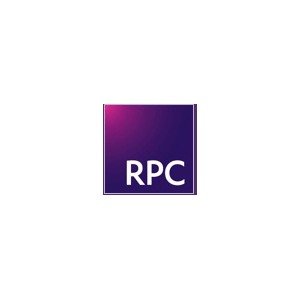Best Nonprofit & Charitable Organizations Lawyers in Quarry Bay
Share your needs with us, get contacted by law firms.
Free. Takes 2 min.
List of the best lawyers in Quarry Bay, Hong Kong
About Nonprofit & Charitable Organizations Law in Quarry Bay, Hong Kong
Quarry Bay, located on the eastern side of Hong Kong Island, is a bustling commercial and residential area that also serves as a hub for numerous nonprofit and charitable organizations. The legal landscape for these entities in Hong Kong is governed by a combination of ordinances, regulations, and common law principles. Nonprofit organizations are primarily concerned with achieving charitable objectives and are governed under the Companies Ordinance and the Societies Ordinance. Charities in Hong Kong must apply for tax exemption status under Section 88 of the Inland Revenue Ordinance. These laws and regulations help ensure that nonprofit organizations operate transparently and effectively to serve the public interest.
Why You May Need a Lawyer
Legal assistance may be necessary for several reasons when dealing with nonprofit and charitable organizations. Common situations include:
- Establishing a new nonprofit or charity, including drafting bylaws and incorporation documents.
- Applying for and maintaining tax-exempt status.
- Navigating regulatory compliance and governance issues.
- Addressing employment law matters for staff and volunteers.
- Handling disputes, whether internal or with external parties.
- Understanding and managing intellectual property issues.
- Interpreting and applying donations and funding agreements.
Local Laws Overview
Several key aspects of local laws are particularly relevant to nonprofit and charitable organizations in Quarry Bay, Hong Kong:
- Companies Ordinance: Governs the registration and operation of nonprofit companies, including regulatory compliance and reporting obligations.
- Societies Ordinance: Applies to organizations not incorporated under the Companies Ordinance and sets registration requirements.
- Inland Revenue Ordinance (Section 88): Provides tax exemptions for recognized charities. Obtaining this status involves a stringent application process.
- Employment Ordinance: Covers matters related to employment contracts, wages, and conditions for nonprofit staff and volunteers.
- Personal Data (Privacy) Ordinance: Dictates how organizations must handle personal data, emphasizing privacy and protection.
Frequently Asked Questions
How can I start a nonprofit organization in Quarry Bay?
Begin by deciding on your organization's structure (company limited by guarantee under the Companies Ordinance, society under the Societies Ordinance, or trust). You'll need to draft a constitution or set of bylaws and register with the appropriate regulatory body.
What is the process to gain tax-exempt status?
To obtain tax-exempt status, you must apply to the Inland Revenue Department, demonstrating that your organization meets the criteria under Section 88 of the Inland Revenue Ordinance as a charity.
Do charitable organizations need to file annual returns?
Yes, charitable organizations must submit annual returns and financial statements to the Companies Registry or other relevant authorities to maintain transparency and compliance.
Can a foreign NGO operate in Quarry Bay?
Yes, foreign NGOs can operate, but they must comply with local registration requirements either as a branch office or incorporated entity under Hong Kong laws.
What kind of funding can nonprofits in Quarry Bay access?
Nonprofits may access funding through public donations, government grants, corporate sponsorships, and international funding bodies. Each source may have its own requirements and regulations.
How are donations to nonprofits in Quarry Bay regulated?
Donations are regulated under the Inland Revenue Ordinance, ensuring that they are used for charitable purposes. Transparency in fund allocation and management is essential.
What obligations do nonprofits have regarding personal data?
Nonprofits must adhere to the Personal Data (Privacy) Ordinance, ensuring that they respect individuals' privacy rights and manage personal data responsibly.
Are there any restrictions on the activities of charitable organizations?
Yes, the activities should align with defined charitable purposes and should not aim for profit distribution among members or trustees.
Can a charitable organization engage in political activities?
Charitable organizations must maintain a non-political stance, although they can engage in advocacy that aligns with their charitable objectives.
What legal liabilities do board members of nonprofits face?
Board members must act in good faith, with due care, loyalty, and obedience. Failure to meet these duties can result in legal liabilities, emphasizing the importance of understanding governance obligations.
Additional Resources
For further assistance and information, consider reaching out to the following resources:
- Inland Revenue Department: Offers guidance on tax exemption applications.
- Companies Registry: Provides information on registration and compliance for nonprofit organizations.
- Hong Kong Council of Social Service: Provides support and resources for NGOs and charities.
- Law Society of Hong Kong: Can assist in finding qualified legal professionals specializing in nonprofit law.
Next Steps
If you need legal assistance with nonprofit and charitable organization issues, consider the following steps:
- Identify the specific legal issues or questions your organization is facing.
- Research and contact a qualified lawyer specializing in nonprofit and charitable organization law.
- Prepare necessary documentation and questions beforehand to maximize the efficiency of your legal consultation.
- Engage in continuous education regarding laws and regulations affecting nonprofits to ensure ongoing compliance and best practices.
Lawzana helps you find the best lawyers and law firms in Quarry Bay through a curated and pre-screened list of qualified legal professionals. Our platform offers rankings and detailed profiles of attorneys and law firms, allowing you to compare based on practice areas, including Nonprofit & Charitable Organizations, experience, and client feedback.
Each profile includes a description of the firm's areas of practice, client reviews, team members and partners, year of establishment, spoken languages, office locations, contact information, social media presence, and any published articles or resources. Most firms on our platform speak English and are experienced in both local and international legal matters.
Get a quote from top-rated law firms in Quarry Bay, Hong Kong — quickly, securely, and without unnecessary hassle.
Disclaimer:
The information provided on this page is for general informational purposes only and does not constitute legal advice. While we strive to ensure the accuracy and relevance of the content, legal information may change over time, and interpretations of the law can vary. You should always consult with a qualified legal professional for advice specific to your situation.
We disclaim all liability for actions taken or not taken based on the content of this page. If you believe any information is incorrect or outdated, please contact us, and we will review and update it where appropriate.











